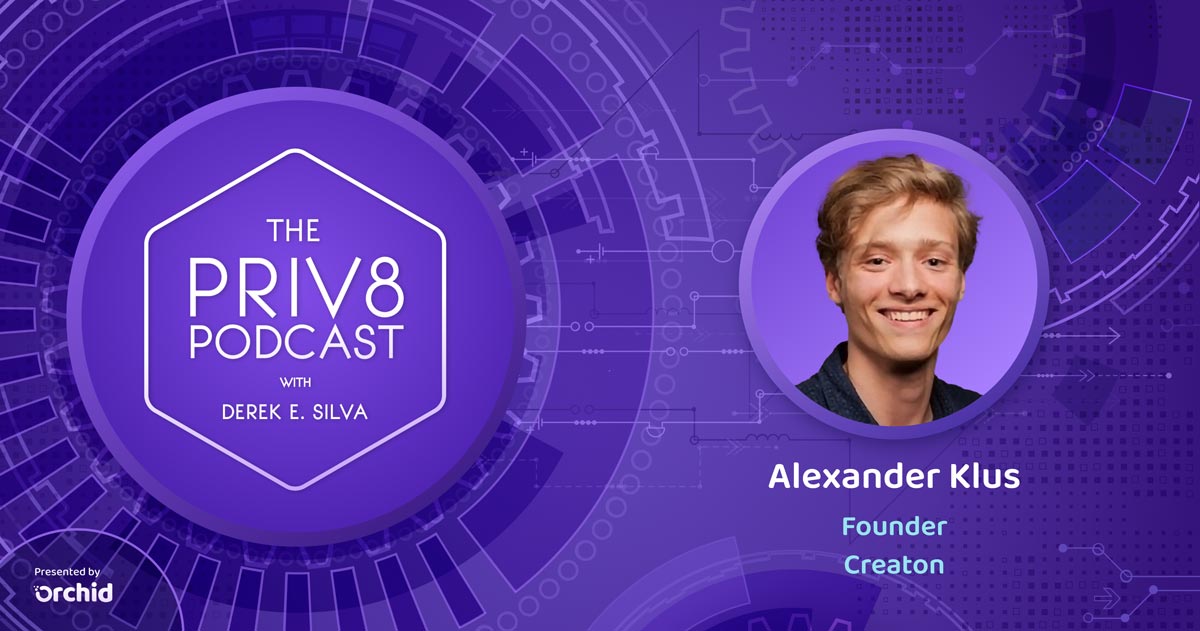
Creaton’s Alexander Klus on Artistic Censorship and Privacy Protection Online
Sep 20, 2021
Independent creators have struggled to find ways to monetize their work in the age of the Internet. Earlier this year, some artists benefited from the emergence of non-fungible tokens (NFTs) and other decentralized technologies, but challenges inherent in Web 2 design — namely, censorship and lack of privacy — remain widespread.
"Censorship is one of the biggest problems in today's Web 2 landscape," said Alexander Klus, founder of decentralized content sharing platform Creaton, which he described as a "decentralized Patreon." He spoke to Orchid's Derek Silva on this week's episode of the Priv8 podcast.
"There are a lot of YouTubers that regularly skip certain topics over the fear of being demonetized or concerns that the algorithm won't 'like' their content," he said. "The biggest problem creators face is monetizing their work while retaining total control over their output, because as an artist, you don't want to think about the limitations that a particular platform has, or the things you can and cannot say."
"It's really important that creators do not have any blocks in what they can and can't do."

Moreover, creators who use centralized Web 2 platforms to store and share their content are also exposed to the risk of their work, and their personal data, being compromised. Until decentralized systems are built to support the sharing of artistic work, the operators of centralized platforms have unfettered access to anything that resides on their systems—not just content, but also private messages, user identity data, metadata, and more.
On decentralized platforms, by contrast, "all of the content is completely owned by the users themselves," Alexander said. "The platform's operators can't control or look into any data unless a creator gives them access."
Decentralized content-sharing platforms do not require users to share personal information in the first place. "You can be completely anonymous. On Creaton, for instance, the only public information is the Ethereum address people use to pay creators. There's no need to force anyone to submit their names, photo IDs, or anything like that."
Check out Derek's entire conversation with Alexander here. And don't forget to subscribe to Priv8 Podcast on your favorite streaming service.
If you enjoyed this blog, subscribe here for privacy news, commentary, and product updates from Orchid.



